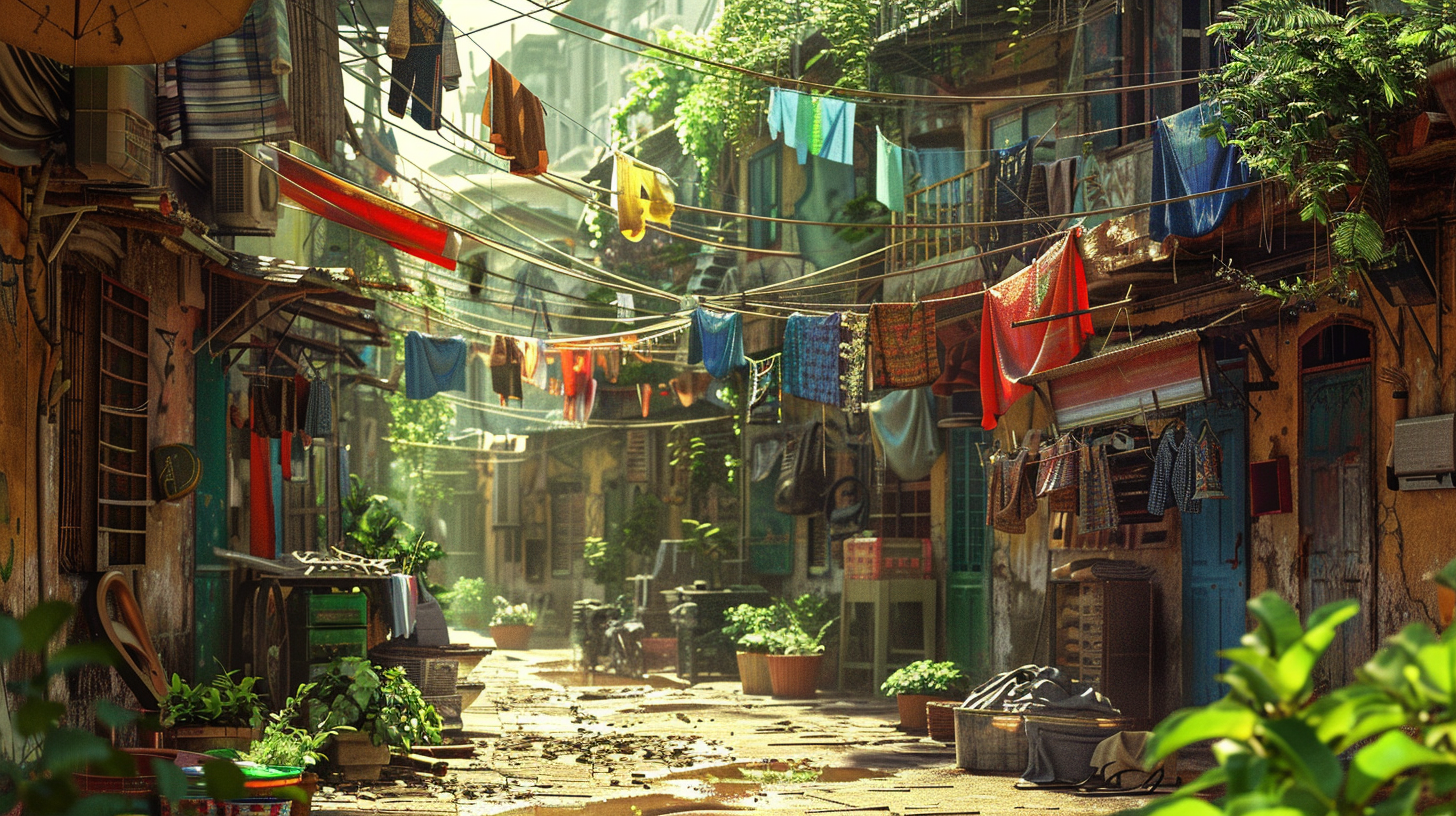Halaban District
The Halaban District of Katrapetch lies to the south and west of the ancient centre, beyond the Old City Walls but within the protective limits of the Pale Empire Walls. Most of the Vassith manufacturing industry in the city is located within this district and it is also by far the most important area for the clothing trade. Here you can find every type of service related to crafting and repairing garments of all kinds, from weaving to dyeing, to cutting and tailoring, sowing and measuring, laundering, stitching, making buttons, loops and padding and exotic arcane fasteners and decorations.
Industry & Trade
Although great mills and clothing factories dominate volume and export production, Halaban has retained earlier traditions of bespoke outfits made by specialist tailors and fabric workshops that can take an idea from Celovass to Vassith and put it on the body of a discerning customer for only a little greater cost. These fashion houses thrive in the shadow of the industrial behemoths and stand crowded between little laundries, patchwork and repair soweries in locations like Sowsow street shown at the head of the article, Linpin alley and Merlle Street.
History
The earliest building in the district began several centuries before the Battle of Katrapetch and set a pattern for future industry and trade here, but the period of most rapid expansion began only after the construction of the Bramsyllis Mill in 3428 BPC and since the suburb was entirely redeveloped within fifty years, it is not inappropriate to consider that year as the true foundation of contemporary Halaban.
In 1749 BPC, the Nerveka Mill opened as a competing operation and these two factories still produce between them more than seventy percent of the Vassith made in Katrapetch.
Points of interest
Halaban House is the most imposing of the giant clothing workshops in the district, serving both as a factory and a retail space.
It was built in 2325 APC during the era of the Four Aerial Courts.
Geography
The Westbrook might be a small stream compared with the Jold or the Petch, but it provides the Halaban District with an independent water source which serves the need of local residents and industry.







Comments